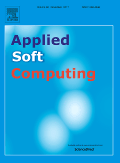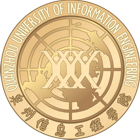
- Written by: Thomas Weise
Today, our article "Automatically discovering clusters of algorithm and problem instance behaviors as well as their causes from experimental data, algorithm setups, and instance features" has appeared in the Applied Soft Computing journal published by Elsevier, which describes our research topic Automating Scientific Research in Optimization. This article maybe marks the first contribution where a significant part of the high-level work of a researcher in the fields of optimization and machine learning is automated by a process applying different machine learning steps.
Thomas Weise, Xiaofeng Wang, Qi Qi, Bin Li, and Ke Tang. Automatically discovering clusters of algorithm and problem instance behaviors as well as their causes from experimental data, algorithm setups, and instance features. Applied Soft Computing Journal (ASOC), 73:366–382, December 2018.
doi:10.1016/j.asoc.2018.08.030 / share link (valid until November 6, 2018)
In the fields of heuristic optimization, we aim to get good solutions for computationally hard problems. Solving the Travelling Salesman Problem, for instance, means to find the shortest tour that goes through n cities and returns back to the starting point. Such problems often cannot be solved to optimality in feasible time due to their complexity. This means that algorithms often start with a more or less random initial guess about the solution and then step-by-step improve it. This means performance has two dimensions: the runtime we grant to the algorithm until we stop it and take the best-so-far result and the solution quality of that best-so-far result. Since there currently are not yet sufficient theoretical tools to assess the performance of such algorithms, researchers conduct many experiments and compare the results. This often means to apply many different setups of an algorithm to many different instances of a problem type. Since optimization algorithms are often randomized, multiple repetitions of the experiments are needed. Evaluating such experimental data is not easy. Moreover, as evaluation result, we do not just want to know which algorithm performs best and which problem is the hardest ― a researcher wants to know why.
- Written by: Thomas Weise
I am happy to announce that our group has moved into our new offices in the new building 52 with the nice name [合肥学院综合实验楼]. While the new offices are still temporary, they are very nice and modern. We not just have much more space than before, all the members of our young group can now also finally be co-located, which will make collaboration much easier. We are very thankful for the support of our university and faculty. The new building is quite beautiful, modern, and even equipped with solar panels on the facade! Our campus is now growing quickly and, with the generous support of the city and the government, our university adds more and more facilities and buildings.
- Written by: Thomas Weise
Introduction
A long time ago, when I was a PhD student, I wrote the book Global Optimization Algorithms – Theory and Application, which I published on my personal website as pdf. Since I recently developed the short course Metaheuristics for Smart Manufacturing and had a very nice experience teaching it, I have decided to begin to write a new book about optimization, "An Introduction to Optimization Algorithms," to incorporate my experience during the past ten years working in the field. When writing such a book, there are a couple of desirable features to improve the workflow and results, such as:
- using a version control and distributed authoring system, which allows me to easily work on and extend the book as well as to make changes to the book and commit them wherever I am,
- automated conversion of the book's sources to PDF, ideally whenever I commit a change,
- automated provision of the PDF version of the book at an online location,
- the generation of an electronic version of the book more suitable for handheld devises like mobile phones, i.e., an EPUB version, which should be automatically be built and provisioned like the PDF version,
- maybe even the possibility that readers can file change requests, ask questions, or propose content to add in a structured way, and
- the option to edit source code examples in an independent repository and update the book whenever they change.
In this post, I want to discuss a process, workflow, and tool support I came up with to achieve all of these features. This workflow has been designed in a way so that you can use it too, easily, for your own open books. Here we first describe the setup, which is stuff you have to do once and only once. After that, we discuss the features and commands that you have available inside your book. You can also find a set of slides about this project here.

- Written by: Thomas Weise
Today, I had the great pleasure of teaching my short course Metaheuristics for Smart Manufacturing [智能制造的元启发式算法] at the Quanzhou University of Information Engineering [泉州信息工程学院] in Quanzhou city [泉州市] in the Fujian province [福建省] as part of the 2018 Teacher Training Program of the Sino-German Center for Education Cooperation and Development of the Fujian Province [中德(福建)教育合作与发展师资培训项目] with the topic "Intelligent Manufacturing". The course was given as two 2-hour lectures to an audience of about 30 key teachers from more than 20 higher vocational colleges in the province who mainly specialized in the field of mechanical engineering.

- Written by: Thomas Weise
Today, on Thursday, July 26, 2018, our first Institute Workshop on Applied Optimization took place. Three talks were contributed by our researchers as well as our international guest researcher Dr. Mohammad Ali Raayatpanah [محمدعلی رعایت پناه] from the Kharazmi University [دانشگاه خوارزمی] in Iran [جمهوری اسلامی ایران]. We believe that a good way to good research is cooperation and the exchange of thoughts. It is especially good to discuss about research from different, but related fields. Each talk led to interesting conversations and hopefully has opened up opportunities for even more inspiring discussions and joint research. This workshop was succeeded by the Second Institute Workshop on Applied Optimization: Seminar on Operations Research and Optimization in 2019.
